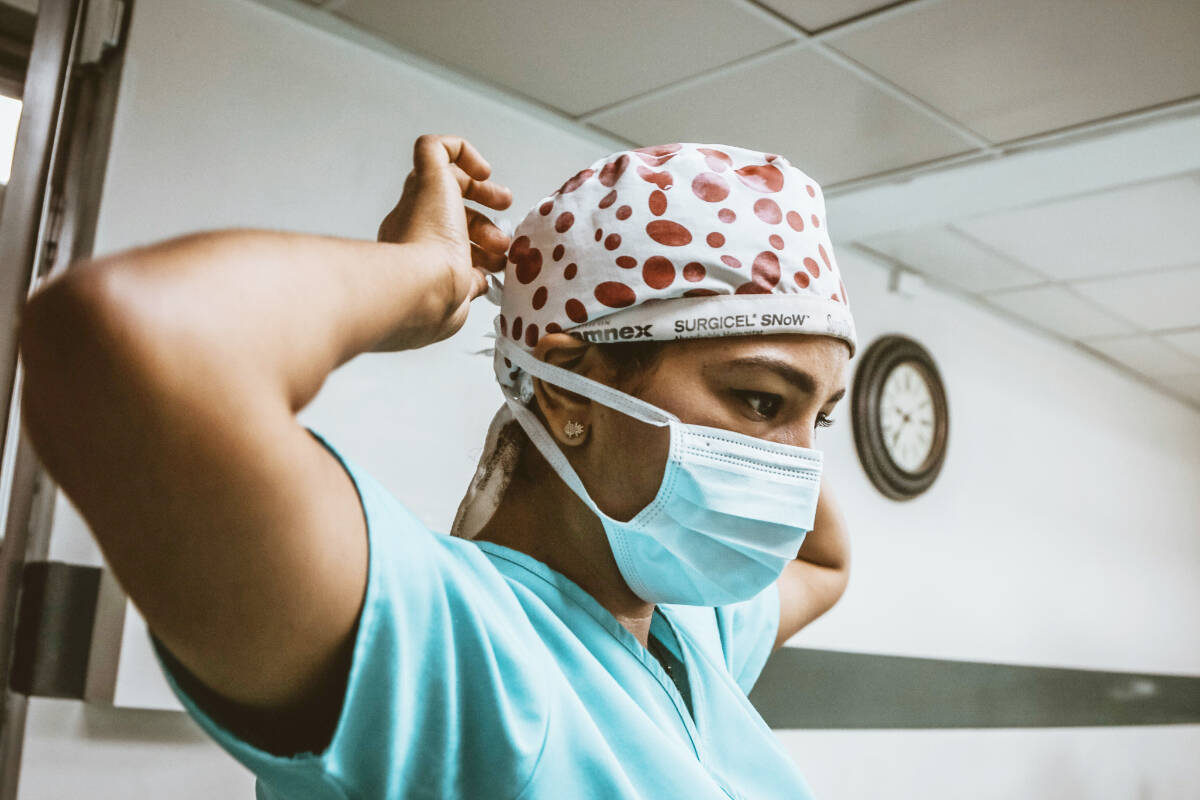Thirty-six health care workers received compensation through WorkSafeBC in 2023 after being exposed to substances of various kinds, including drugs.
B.C. Labour Minister Harry Bains revealed that figure Tuesday (April 9) while answering questions about his ministry’s budget.
“So 36 health care workers, which include nurses, had time-loss claims accepted for exposure, a number of exposures that include tobacco, medications or even drugs and 14 of these workers were nurses,” Bains said in response to questions from B.C. United’s Greg Kyllo.
Starting last week with a leaked memo, parts of the political opposition have accused the B.C. NDP of ignoring the safety of health care workers in calling for an end of decriminalization. These calls have cited several anonymous reports of nurses being exposed to illicit substances and open drug dealing in hospitals. According to one such report, a nurse was told not to breastfeed her infant as a precaution after being exposed to smoke following her return from maternity leave.
The subject has dominated Question Period during recent days and did again on Thursday when B.C. United’s MLA Shirley Bond raised it.
“It takes courage for nurses in British Columbia to stand up, and they are standing up every single day and telling this premier and this minister that they do not feel safe in the hospitals of British Columbia,” Bond said. “What do we hear in here? ‘Oh, don’t worry about it. It’s not allowed.’ Well, it may not be allowed, but nurses are tired of the lack of action of this premier (David Eby) and (Health Minister Adrian Dix) and it is embarrassing that they stand up every day and dismiss stories like this one.”
RELATED: Health minister announces task force to deal with drug use in B.C. hospitals
RELATED: B.C.’s nurses support harm reduction, but call for additional safety measures
RELATED: Leaked memo sparks heated debate about drug use in northern B.C. hospitals
Dix disagreed.
“We know that we need stronger security in our health care system,” he said during his exchange with Bond. “That’s why, listening to nurses, and listening to the (Health Employers’ Union), and listening to health science professionals, we added 320 regional security officers. This is a contrast to a government that downgraded and privatized security. We are committed to working, supporting, protecting and every day doing the work required to make our health care system better by working with nurses, and we’ll continue to do so.”
Conservative Party of B.C. Leader John Rustad, meanwhile, questioned B.C. decriminalization process, asking why a worker in a government-funded supportive housing project in Victoria had to wear a gas mask “because of the amount of drug fumes.”
“It is not normal for people to be exposed to dangerous fumes in the workplace,” he said. “We should not accept open drug use. We should not be accepting drug-fuelled violence, toxic fumes, and this should not be the new normal.”
Housing Minister Ravi Kahlon said the building in question is older with poor circulation. But the building also houses vulnerable individuals and enforcement of its strict no-smoking-indoor policy would force residents onto the streets.
Kahlon said government is moving all the residents to a new building with better circulation to not only protect workers but also tenants. He also accused the Conservatives of being blind to issues of addiction among people living in shelters and scoring political points off them.
“It’s easy to punch down on the most vulnerable people,” Kahlon said. “It’s easy to punch down on homeless people.”

